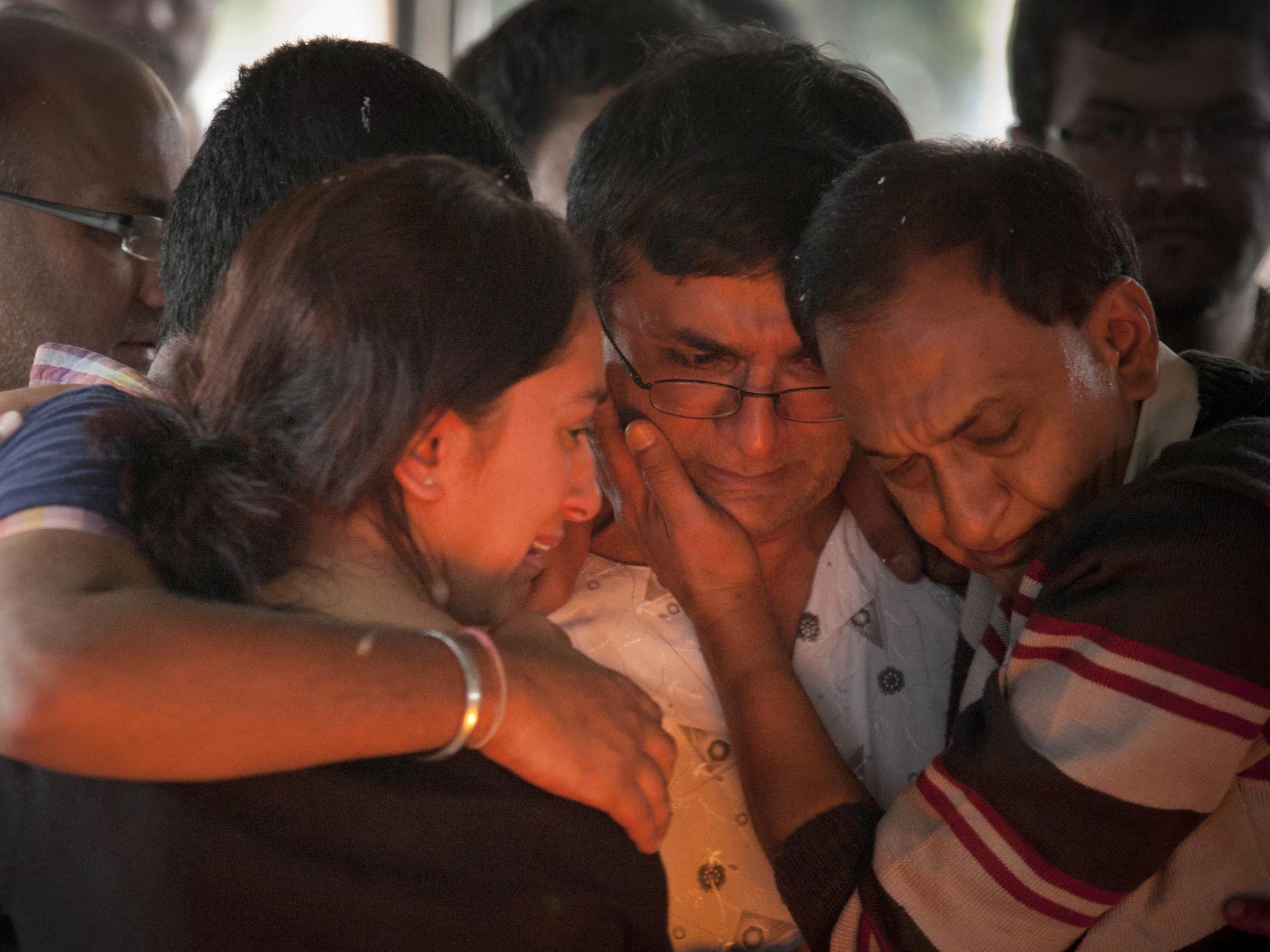Kenya shopping mall attack: British death toll could rise to 10 as authorities search rubble for bodies
Militants claim 137 killed in siege and accuse Kenya of using chemicals to subdue attackers and demolishing building to cover up evidence
Your support helps us to tell the story
From reproductive rights to climate change to Big Tech, The Independent is on the ground when the story is developing. Whether it's investigating the financials of Elon Musk's pro-Trump PAC or producing our latest documentary, 'The A Word', which shines a light on the American women fighting for reproductive rights, we know how important it is to parse out the facts from the messaging.
At such a critical moment in US history, we need reporters on the ground. Your donation allows us to keep sending journalists to speak to both sides of the story.
The Independent is trusted by Americans across the entire political spectrum. And unlike many other quality news outlets, we choose not to lock Americans out of our reporting and analysis with paywalls. We believe quality journalism should be available to everyone, paid for by those who can afford it.
Your support makes all the difference.Kenya claims that only a few bodies remain to be found in the Westgate shopping mall following the end of a bloody four-day siege by Islamist militants that claimed the lives of at least 67 people.
“We strongly believe ... that there are insignificant numbers of bodies still holed up,” said Interior Minister Joseph Ole Lenku, cautioning that a full forensic probe to identify those still in the mall, including up to five dead militants, would take at least a week.
A day after President Uhuru Kenyatta defiantly declared the siege over, the Kenyan Red Cross has said that 71 people are still officially listed as missing, suggesting that the official death toll could double in the coming days. British officials say that up to 10 Britons may have died in the attack. Six are so far confirmed dead.
Al-Shabaab, the militant group that has claimed responsibility for the bloody attack, has countered via its Twitter feed, thought to be genuine, that 137 people died in the siege. It accused the Kenyan authorities of using chemicals to subdue the attackers, and of demolishing the building to cover up the evidence.
Kenya has dismissed the claims as “wild allegations,” saying that when the militants set fire to mattresses on the third day of the siege, it caused structural damage to the mall, causing floors to collapse. Aerial video footage of the mall appeared to suggest an explosion had occurred, with a number of burnt-out cars parked on the rooftop visible.
The siege, Kenya’s worst terror attack since the US Embassy bombings in Nairobi in 1998, began Saturday lunchtime when gunmen with machine guns stormed the Westgate shopping mall, a popular hangout for affluent Kenyans and expatriates, and started shooting at everyone in sight.
It took Kenyan forces an hour to arrive at the scene of the carnage, and another three days for them to overcome the militants, the exact number of whom is not known. Al-Shabaab claimed the attack was revenge for Kenya’s 2011 offensive against it in Somalia, where continuing insecurity has provided fertile recruiting ground for militants.

As Kenya counts the cost of the siege that united the nation in grief, many questions remained unanswered, including the identity of the attackers, whether British and American nationals were among the militants, and how the militants were able to procure such large amounts of weaponry without arousing suspicion.
Mr Ole Lenku said finding the answers was an “elaborate process,” and added that Kenyan police were being assisted by international police teams from the US, Britain, Israel and other countries to gather evidence, such as fingerprints, DNA and ballistic information.
But Kenya’s Red Cross urged officials to allow access to the mall. “The bodies that are still inside the mall will have to be identified from photos. They are now in such a state of decomposition that you can't put a family member through that,” an official told Agence France Presse.
As Kenya entered a three-day period of mourning on Wednesday, with flags lowered to half-mast across the capital, harrowing stories continued to emerge from survivors, among them the account of a man running for the exit in a car park only to be hit and killed by a speeding car as it headed for the ramp. Joseph Mathenge, a Kenyan freelance journalist, witnessed the scene after entering the mall with his son alongside police to rescue a friend who had called him for help.
Meanwhile, the Foreign Office confirmed that a British man had been arrested in Nairobi following the siege, but later said that he was not being linked to the attack. Mohammed Abdilazak, 35, was arrested at Nairobi’s airport after acting suspiciously, according to Kenyan media reports. He arrived in the country in June.
Join our commenting forum
Join thought-provoking conversations, follow other Independent readers and see their replies
Comments